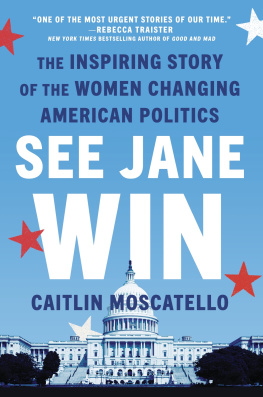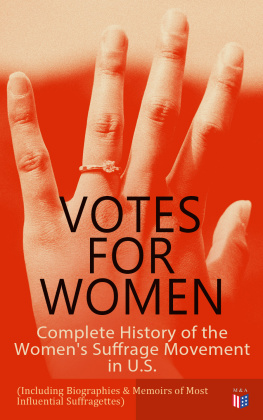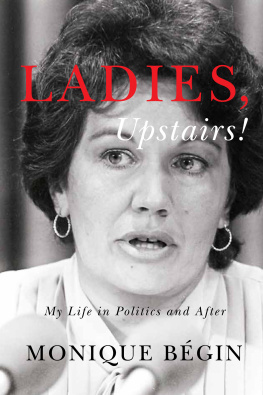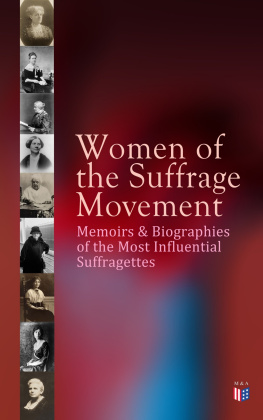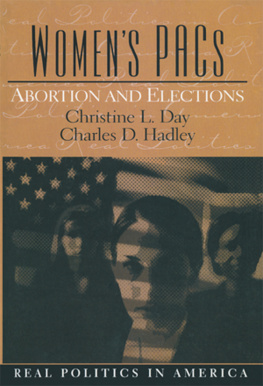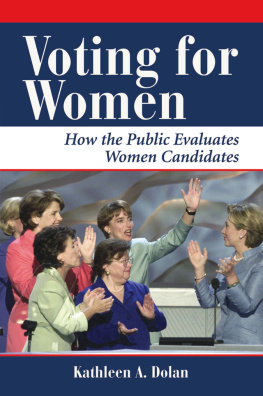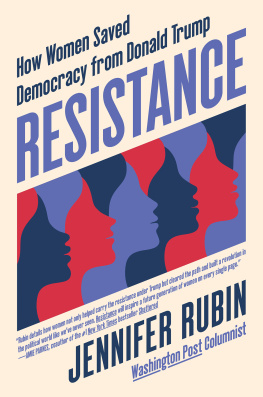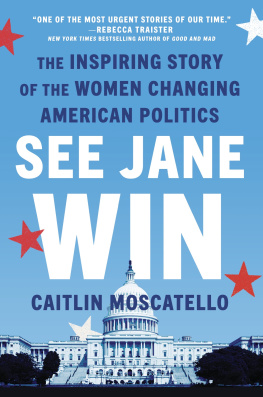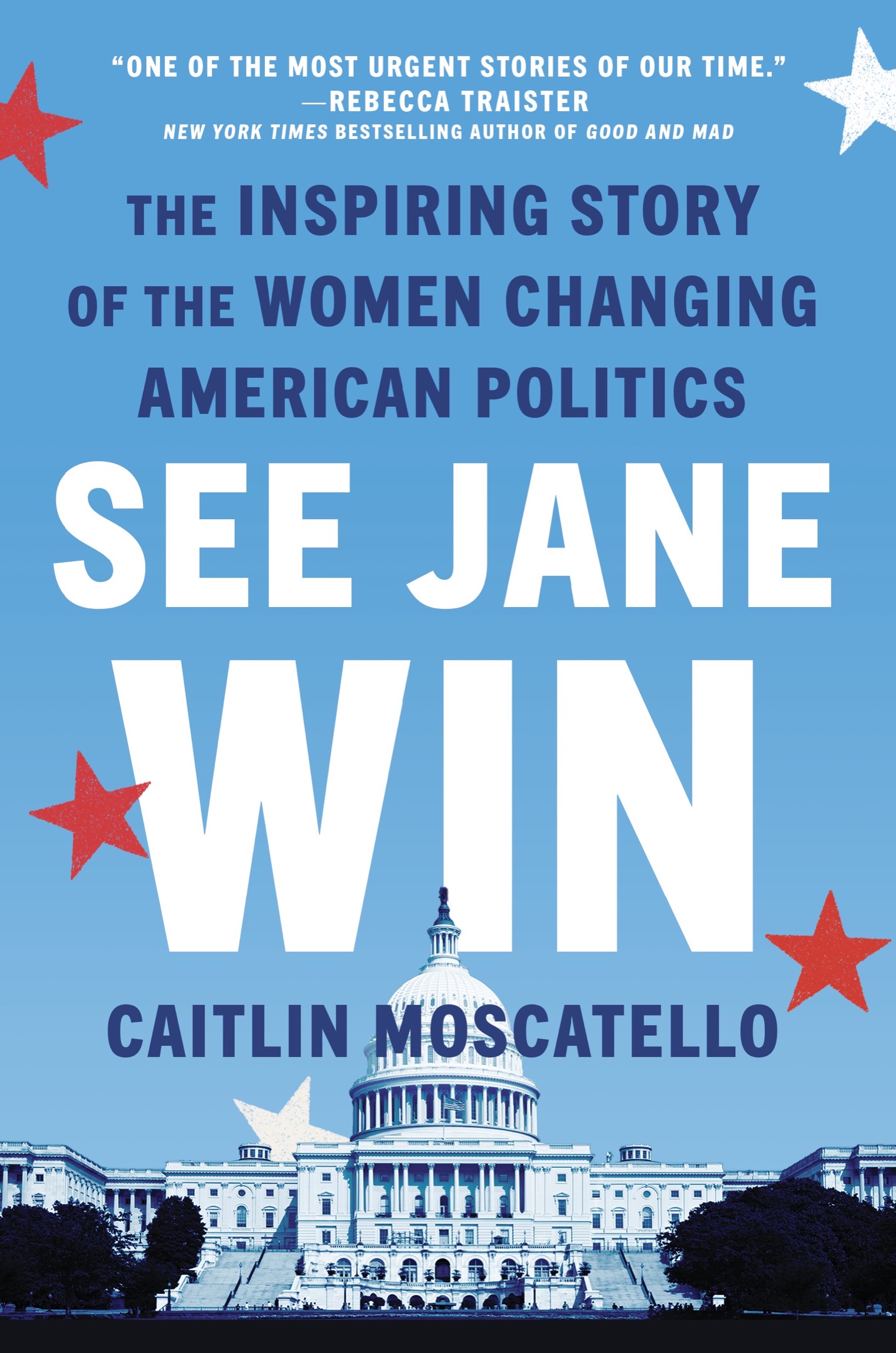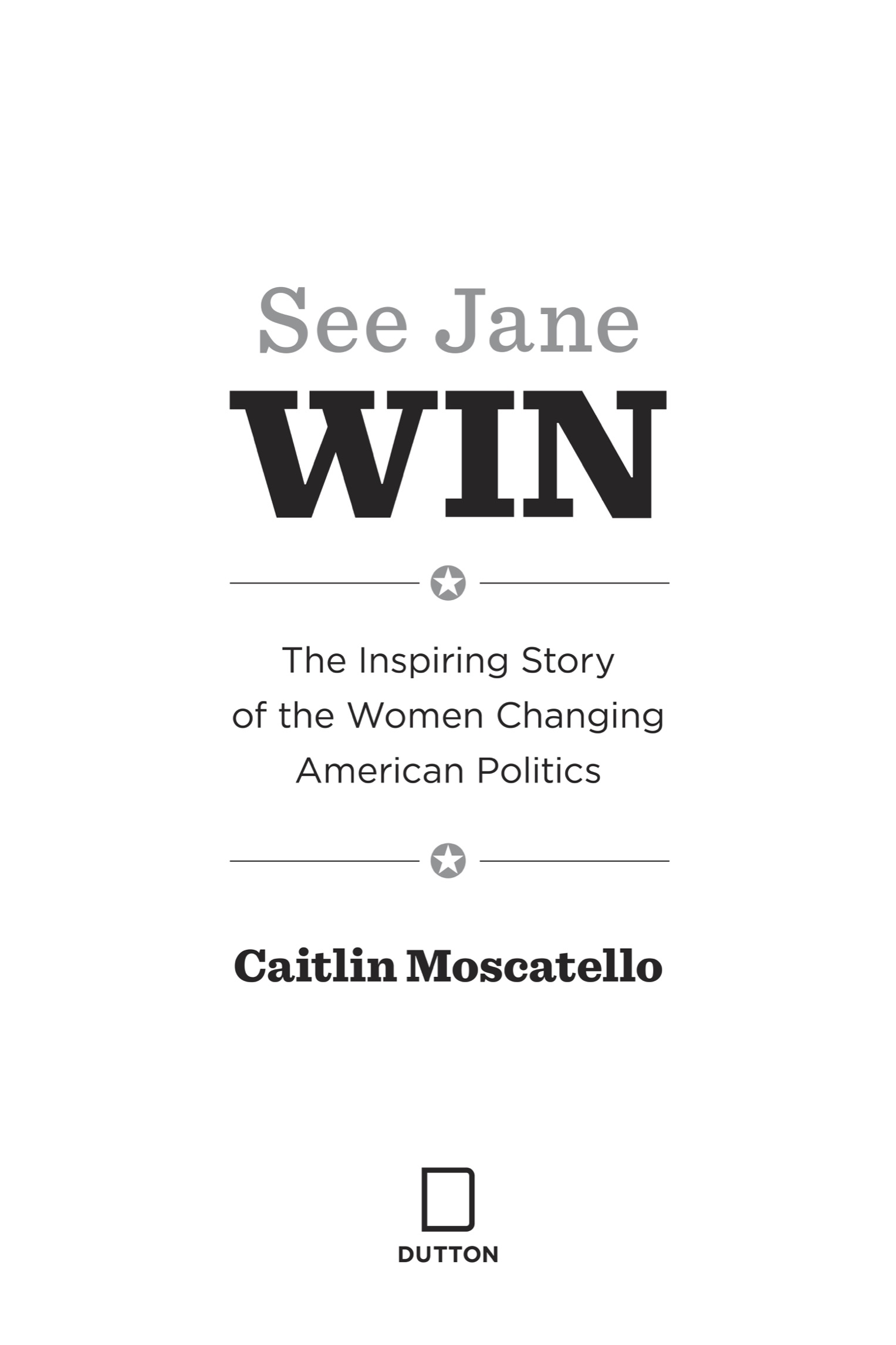Penguin supports copyright. Copyright fuels creativity, encourages diverse voices, promotes free speech, and creates a vibrant culture. Thank you for buying an authorized edition of this book and for complying with copyright laws by not reproducing, scanning, or distributing any part of it in any form without permission. You are supporting writers and allowing Penguin to continue to publish books for every reader.
DUTTON and the D colophon are registered trademarks of Penguin Random House LLC.
has been applied for.
While the author has made every effort to provide accurate telephone numbers, internet addresses, and other contact information at the time of publication, neither the publisher nor the author assumes any responsibility for errors or for changes that occur after publication. Further, the publisher does not have any control over and does not assume any responsibility for author or third-party websites or their content.
Women in this country must become revolutionaries. We must refuse to accept the old, the traditional roles and stereotypes.... We must replace the old, negative thoughts about our femininity with positive thoughts and positive action affirming it, and more. But we must also remember that we will be breaking with tradition, and so we must prepare ourselves educationally, economically, and psychologically in order that we will be able to accept and bear with the sanctions that society will immediately impose upon us.
Introduction
My now husband and I took our engagement photos on November 8, 2016the same day that the first woman would be elected president of the United States. Or so I, and millions of others, thought. In the images, Im beaming, still high off what Id witnessed that morning at the polls. Id arrived at 5:45 a.m. to find a line already wrapped around a corner of my New York City neighborhood, excited voters clutching coffees in the dark and talking about what a thrilling and historic day it was going to be. I kept my cool until I looked over and locked eyes with an older woman in a cream-colored pantsuit. She smiled and nodded at me, and I nodded back, a mutual, I got you. I was confident in the polling data, almost all of which pointed to a Hillary Clinton victory. I was confident in our country. Donald Trump had been so hateful, so disgusting as a candidate, I believed that a Clinton victory was all but a sure thing. In the photos, I am wearing the expression of someone not only in love but also certain shes about to witness history. What a brief, magical time.
You dont need me to tell you how things played out. Like many of the women I spoke with during the course of writing this book, I didnt sleep that night. Instead, with puffy eyes and a lot of carbohydrates, I spent the early hours of November 9 emailing the editors I work with as a freelance journalist, trying to make sense of what had happened. Everyone was awake. Everyone was in a fog. Texts and emails changed from grasping on to any thread of hope to serious conversations about our new reality. A Trump presidency was upon us. What would it mean? How would we make sense of all of this so quickly?
The first weeks after the election were, to put it bluntly, bleak. And that was the view from the admittedly cushy perch of a college-educated white woman living in a liberal city. I was sad, but I was not scaredat least not for myself. I was not a Dreamer who now feared deportation. I was not suddenly at risk of losing my healthcare, or the healthcare of my child. Trumps hardest punches would likely swish past me, but they had the potential to land squarely on millions of other people, including people I loved, and that made me angry and raw in a way I hadnt experienced before.
It wasnt just who had won, either; it was what had won. Racism. Sexism. Ignorance. Intolerance. As women, we saw, for the first time, one of our own poised to take the presidency. And then, we watched that same competent, qualified woman, who had done what weve all been told since girlhoodwork hard, play by the rules, move up the ladder, rung by splintering rungdefeated by a misogynistic narcissist known to many Americans as a reality TV star. It was as if an ice-cold bucket of water had been dumped over our heads: Not only would we not get the first female president, we would be forced to watch a man who bragged about sexually assaulting women take her place.
I wondered how women across the country would react to the Trump administration, which had the potential to push its agenda forward with few backstops, thanks to a GOP-controlled House and Senate. I was also desperate to find a bright spot in the mess we were in, any thread of optimism to grab on to and squeeze tight. The country had been handed over to a bunch of mostly old, mostly white, conservative men. Progressive women would rise up, but how high? Theyd speak out, but how loud? Was all that talk about pussy grabs back the stuff of hashtags and memes, or was there real bite behind the growl? I had tons of questions and almost no answers, but one of the few things I was certain of was that without more women in office, our rights would continue to be at risk. I started thinking about powerwho gets it and when and why. And I started thinking about what it really meant that, even in 2017, women made up only about one-fifth of Congress and roughly a quarter of state legislatures and statewide executive offices.
It wasnt clear then that this was the shining light Id been searching for, but I was compelled to follow it. I made calls to groups that train women to run for office, which led to conversations with potential candidates. It was so early, very few had decided if they would definitely run. But I realized quickly how compelling these women were. Conversations where Id requested just a few minutes of your time, thanks so much often lasted over an hour, and I would hang up the phone feeling energized. Something was happening, something bigger than a march or a protest. A few weeks later, I told my agent that I had an idea for a bookand it was either going to be a really inspiring or really depressing story, and I wouldnt know which until Election Day 2018. I also wouldnt know at the outset who the main characters would be, because there was no way to predict who would make it onto the ballot. It sounds crazy in hindsight. And yet, thats the very book youre about to read.
In the almost two years I spent reporting this story, the feeling that women were so much further from equality than we had thought remained deeply palpable among candidates and voters alike. It was not uncommon for women to tear up recalling Election Night, or pause to take a breath, telling me what it felt like watching Clintons concession speech. The pain spanned generations. A young woman in Philadelphia, who was 27 at the time, recalled staring out the car window the morning after the election and seeing a distraught woman waiting for a bus. I just fell apart, she said. People looked like zombies. Something about looking at this woman, and thinking about how messed up everyone was from what happened, it was just so disturbing. And I knew I looked the same way. We were all fucked up from it. A pro-choice activist in her 70s put it to me this way: It felt like someone had died. And something

